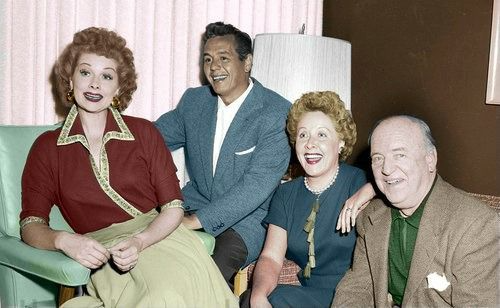
When I Love Lucy first aired on CBS in 1951, it quickly became more than just a hit sitcom—it transformed the way audiences perceived women on television, comedy as a genre, and even how TV shows were produced. At the center of this revolution was Lucy Ricardo, portrayed by the incomparable Lucille Ball.
A Character Like No Other
Lucy Ricardo was not your typical 1950s TV wife. Far from being the demure, silent homemaker so often depicted on screen at the time, Lucy was loud, quirky, ambitious, and sometimes downright mischievous. Her schemes to break into show business—usually involving over-the-top antics—were the heartbeat of the show. Whether it was trying to become a singer, an actress, or an ice-cream vendor, Lucy’s relentless pursuit of her dreams made her a character audiences rooted for.
Her physical comedy—falling, slipping, and engaging in slapstick mayhem—was groundbreaking. Lucille Ball’s impeccable timing and fearless approach to comedy set a new bar for what female performers could do. The famous chocolate factory assembly line scene remains one of the most iconic moments in television history.
Breaking Gender Norms On and Off Screen
Lucy Ricardo was more than just a source of laughs. She was a subtle but powerful feminist symbol. At a time when women were often relegated to the background, Lucy commanded the spotlight. Her flaws, ambitions, and failures made her relatable and inspiring.
Off-screen, Lucille Ball shattered glass ceilings as a businesswoman. As co-owner of Desilu Productions, she became the first woman to run a major television studio. This gave her creative control not only over I Love Lucy but over many other iconic shows that followed, including Star Trek and Mission: Impossible.
The Chemistry That Changed Television
The dynamic between Lucy Ricardo and the other characters—particularly her best friend Ethel Mertz (Vivian Vance)—defined female friendship on TV for decades to come. Their comedic timing and chemistry brought depth and warmth to the show, proving that women’s stories could be just as entertaining and nuanced as men’s.
Her relationship with Ricky Ricardo was equally groundbreaking, presenting a married couple with genuine affection, respect, and real-life struggles, all wrapped in humor.
Enduring Legacy
Decades later, Lucy Ricardo’s influence is still palpable. She inspired countless female comedians and actresses and remains a beloved cultural icon. Her fearless comedy paved the way for shows like The Mary Tyler Moore Show, Friends, and Parks and Recreation. Lucy showed the world that women could lead a comedy, make audiences laugh uproariously, and do so on their own terms.
